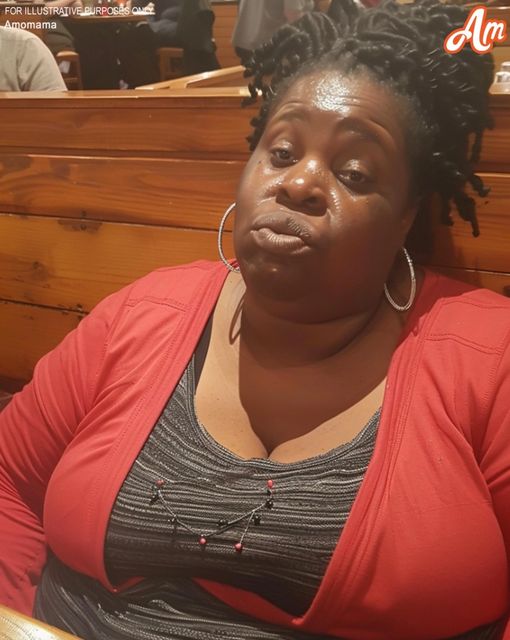After years of being bullied in high school, Lily finally gets to confront her bully, Karen. Karen walks into Lily’s restaurant and falls into her petty high school-self, but when she realizes that Lily has successfully navigated her lisp and stutter, and owns a successful business—Karen flees.
Under the soft glow of the evening lights, the restaurant buzzed with the cheerful din of a successful night. Yet, as I moved between the tables, careful not to bump into any sharp table corners, a familiar and unwelcome face caught my eye—Karen.
She hadn’t changed at all. Even after 20 years, the same haughty expression adorned her face, a look that had tormented me throughout my school years with her cruel taunts about my lisping and stuttering.
Suddenly, I was taken back to high school where my lisp was at its worst, making me second guess speaking.
School speeches were the worst part of my entire schooling life, where girls like Karen would begin laughing from behind their hands and end up hanging off their chairs, tears streaming down their faces.
I would escape to the library and spend every free moment there, just to escape the taunts.
I remember the one incident where I was clutching my books tightly to my chest, trying to make myself smaller, trying to blend into the gray of the lockers as Karen navigated the sea of students, in her impossibly high heels.
I could feel Karen’s gaze like a spotlight, singling me out from the crowd.
“There’s Lisp-Lily, boys!” Karen’s voice boomed, drawing a circle of laughter around me.
“Give us a smile and a speech, Lily,” she said. “Show us that stellar s-s-stutter,” she mocked, her words stretching out with malicious exaggeration.
I remember wanting to cry myself to sleep that night. I sat in the kitchen with my brother, Alex, and I told him all about the events of the day and how Karen had lost it.
“You should give it back to her, Lily,” my brother said, spooning ice cream into a bowl for me.
“If I could, I would,” I said. “But the moment I open my mouth, you know what happens.”
My brother went off on a tangent about how I should never allow anyone to make me feel less than myself.
“You’ve got to stand up for yourself,” he said.
And I did. In my own way.
At school, I made myself scarce often seeking my teachers during lunch breaks or after hours if we had to do any speeches.
And then, I went to a speech pathologist to help work on my lisp and stuttering. I was going to put an end to the constant bullying.
Inside the quiet, sunlit room of the speech therapy center, I sat across from Mrs. Thompson, her speech pathologist. The room was a cozy space filled with soothing blues and greens, designed to make patients feel at ease.
“Lily, today we’re going to start with some new exercises that are specifically designed to help with your lisp and stutter,” Mrs. Thompson began, her voice calm and reassuring.
“We’ll focus on techniques that improve your speech fluency, and we’ll also work on building your confidence in speaking situations.”
I nodded, my hands nervously fidgeting in my lap. The mockery from Karen and the others often echoed in my mind, but each session felt like a step to reclaiming my voice.
And the best part was that Alex was always waiting outside for me—ready to whisk me off for ice cream or pizza or whatever I wanted.
After leaving school, I entered the culinary industry—I knew that it would be the best place for me because I discovered that cooking was my passion and although I had sorted out my speech issues, it was a place where I didn’t need to speak.
Now, seeing Karen in my restaurant was unnerving. I tightened my apron nervously.
I didn’t always work the restaurant floor—but when we were short-staffed, I was always happy to step in.
She was laughing, her head thrown back with a carefree abandon that made my heart clench. But as I approached to take their order, her laughter abruptly stopped, her eyes widening in recognition.
“May I take your order?” I asked, my voice betraying none of the nervousness that fluttered in my stomach.
“Lily? Wow!” Karen exclaimed, her arms in the air. “You work here?”
Her voice curled with disdain as she spoke, as though she had just stepped in something unpleasant.
“Evidently, yes,” I managed to reply, holding my notebook a bit tighter, my knuckles turning white.
“Oh, boy, after all these years,” Karen said, looking at the man she was with. “And imagine, I still can’t understand a word you’re saying. Get me your manager, Lily. I’d like to order my food from someone who will explain what the dishes are.”
She dismissed me with a flick of her hand, her words and actions cutting me deep.
But the years had tempered my spirit, not weakened it. In a way, I had been waiting for this moment since my high school graduation.
In a smooth, practiced motion, I spun around in a balletic pirouette—a move that I had mastered in the many dance classes that had rebuilt the confidence Karen once shattered.
“Yes, ma’am,” I said. “How may I help you?” I faced her again, my stance firm, my smile unwavering.
“Do you really think this is funny?” she asked, her voice sharp, her eyes narrowing in annoyance as she sipped from the glass of water on the table.
“Not really,” I said. “But I do own this place. And if it’s not to your standards, then I’ll happily escort you out.”
“You? You own this place?” she exclaimed before laughing. Her laughter was incredulous, echoing off the walls, filling the space with her scorn.
But destiny was on my side tonight.
My brother, who often helped me run the place, was doing his rounds of the floor in a suit.
“What’s going on?” he asked, looking from Karen to myself.
“Does this woman really own this restaurant?” Karen asked.
Alex chuckled.
“Yes, she does,” he said. “But she liked to wait on guests and sometimes run the kitchen, too.”
Alex’s voice was cool and even, his eyes fixed on Karen with a look that mirrored my own disappointment. He may not have known her personally, but he did know what she looked like.
Karen’s face drained of color, her confident mask crumbling as reality set in.
My brother called for another waiter to come over, and ordered a complimentary glass of whiskey for Karen’s date, a bystander in this unfolding drama, who kept shifting uncomfortably. His gaze kept darting between the three of us.
“But, you used to stutter, and the lisp you had was something else,” Karen said, her words faltering, her attempt to cling to the past making her seem small and petty.
“Yes, and after years of therapy and hard work, not only did I overcome those challenges, but I also built a successful business.”
Karen, now completely deflated, couldn’t meet my gaze. Her date drank his whiskey when it arrived, and she held onto her phone, although she wasn’t using it.
“Can I take your order?” I asked again.
Karen shook her head. And then got up from her chair, ready to escort her own shame out the door.
Later that night, as I sat in my bed, looking through old photos on my phone gallery—I realized that I had finally healed the teenager in me. The teenager who needed to be reminded that she could fight and find success and joy for herself.
It had taken about 20 years, but I finally felt free. I finally felt like I had unleashed all the trauma from high school.
What would you have done?

